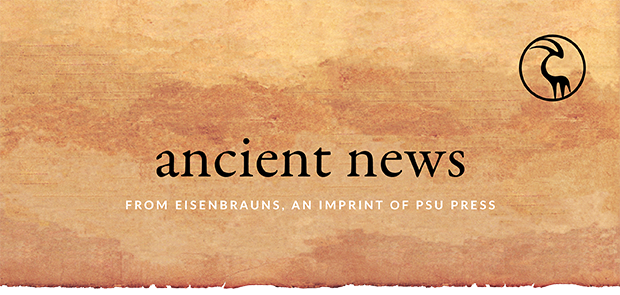
general news
Welcome to the October issue of Ancient News.
Fall, my favorite time of the year. I love the cool mornings, warming up into bright afternoons, crunching leaves on a walk, and then curling up with a good book afterward. I don’t have a fireplace, but if I did, that’s where you would find me in the evening, reading. And we have lots of good reading in this issue!
We’re starting the month with a two-week sale on all titles in the Journal of Theological Interpretation Supplement series, including the soon-to-be-released Reconsidering Creation Ex Nihilo in Genesis 1. I’ve listed a few of the more recent titles below, but take time to visit the sale page to see them all. The sale ends October 15th, so hurry. Find out about all our sales and new releases by updating your BookNews subscription.
October 17th is International Archaeology Day! Help us celebrate by taking advantage of our archaeology sale: up to 50% off! Sale ends October 31st.
We have some new books coming out this month, plus a few that came out in September. I’ve listed four below. Use coupon code NR20 for 30% off. If you have an idea for a book, let Jen Singletary, our acquisitions editor know.
I ran across several good reviews of Eisenbrauns books this month. I’ve included excerpts from four of them below. Use coupon code NR20 for 30% off. If you happen across a review of an Eisenbrauns book, please let me know about it via email!
Rounding out this month’s Ancient News is a pair of PSU Press books that you might find interesting, one of them new in a more affordable paperback. The second one is a bit off the beaten path for Eisenbrauns customers, but sadly relevant; let me know if you enjoy it.
You’ve heard it before, but the Press is still taking precautions related to the novel corona virus, so your orders and responses to inquiries might take longer than normal. Learn more here.
Enjoy the fall weather, crunch some leaves, and read a good book!
James
two-week sale
40% off JTISup titles!
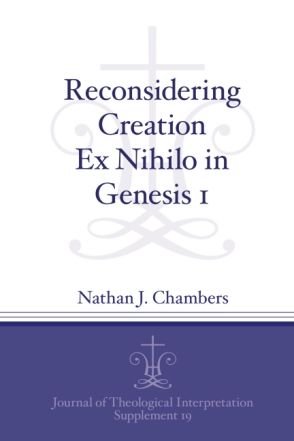
Reconsidering Creation Ex Nihilo in Genesis 1
$49.95 $29.97 (40% off!)
Forthcoming!
Drawing on the theology of Augustine of Hippo and Thomas Aquinas, Chambers considers what the ex nihilo doctrine means and does in classical Christian dogma. He examines ancient Near Eastern cosmological texts that provide a potential context for reading Genesis 1, and, recognizing the distance between the possible historical and theological frameworks for. . . (more)
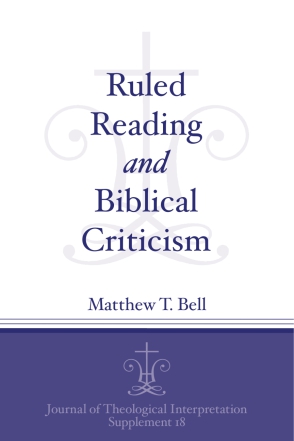
Ruled Reading and Biblical Criticism
$34.95 $20.97 (40% off!)
Modern prejudice holds that ancient Christian interpretation was relatively unconcerned with history and concomitantly determined to foist extrascriptural doctrinal commitments onto scripture, silencing those layers of scripture’s meaning that modern criticism has been most concerned with uncovering. In this book, Bell argues that, when the ethos and. . . (more)
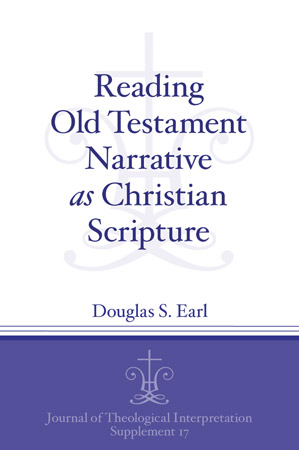
Reading Old Testament Narrative as Christian Scripture
$39.95 $23.97 (40% off!)
Douglas Earl sets out a fresh perspective on understanding what is involved in reading Old Testament narrative as Christian Scripture. Earl considers various narratives as examples that model different interpretive challenges in the form of exegetical, ethical, historical, metaphysical, and theological. . . (more)
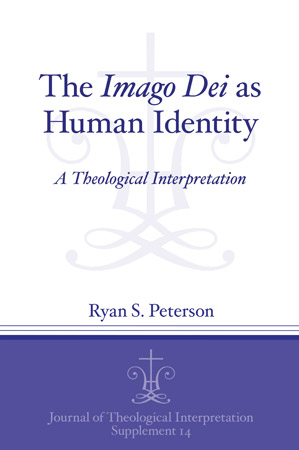
The Imago Dei as Human Identity
A Theological Interpretation
$33.95 $20.37 (40% off!)
Theologians and Old Testament scholars have been at odds with respect to the best interpretation of the imago Dei. Theologians have preferred substantialistic (e.g., image as soul or mind) or relational interpretations (e.g., image as relational personhood) and Old Testament scholars have preferred. . . (more)
new eisenbrauns books
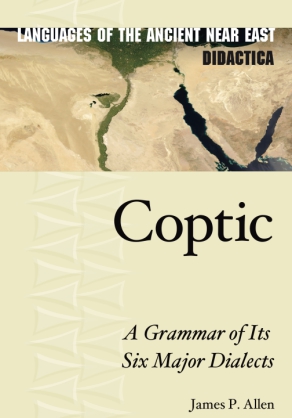
Coptic
A Grammar of Its Six Major Dialects
James P. Allen
Just arrived!
Unlike previous grammars that focus on just two of the Coptic dialects, this volume, written by senior Egyptologist James P. Allen, describes the grammar of the language in each of the six major dialects. It also includes exercises with an answer key, a chrestomathy, and an accompanying dictionary, making it suitable for teaching or self-guided learning as well as general reference. . . (more)
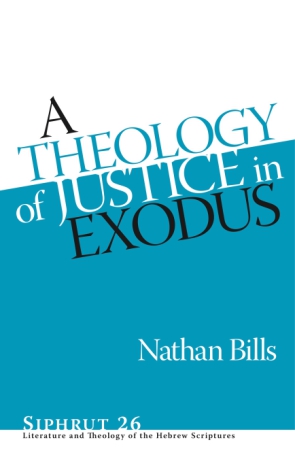
A Theology of Justice in Exodus
Nathan Bills
Forthcoming!
This book traces the theme of justice throughout the narrative of Exodus in order to explicate how YHWH’s reclamation of Israel for service-worship reveals a distinct theological ethic of justice grounded in YHWH’s character and Israel’s calling within YHWH’s creational agenda. . . (more)
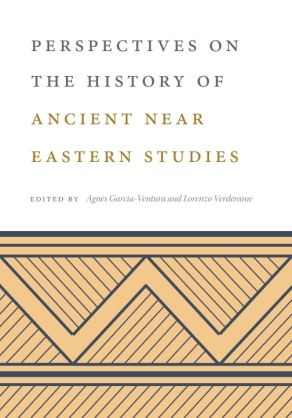
Perspectives on the History of Ancient Near Eastern Studies
Edited by Agnès Garcia-Ventura and Lorenzo Verderame
Forthcoming!
The present volume collects eighteen essays exploring the history of ancient Near Eastern studies. Combining diverse approaches—synthetic and analytic, diachronic and transnational—this collection offers critical reflections on the who, why, and how of this cluster of fields. How have political contexts determined the conduct of research? How do academic agendas reflect larger. . . (more)
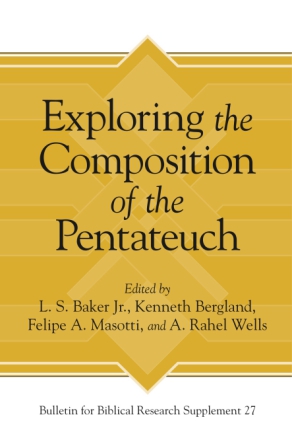
Exploring the Composition of the Pentateuch
Edited by L. S. Baker Jr., Kenneth Bergland, Felipe A. Masotti, and A. Rahel Wells
Forthcoming!
Covering a wide spectrum of topics and diverging perspectives, the chapters in this book are grouped into two parts. The first is primarily concerned with the history of scholarship and alternative approaches to the development of the Pentateuch. The second focuses on the exegesis of particular texts relevant to the composition of the Torah. The aim of the project is to foster. . . (more)
virtual exhibits & events
We’re excited to offer these virtual exhibits and look forward to seeing you in person at conferences in the future. See the full list of virtual exhibits here.
Virtual author event w/Eisenbrauns authors
11/5, 11/12
(dates tentative)
More details to follow!
Virtual
Annual Meeting
of
ASOR
11/18–22
Annual Meeting
of the
Society of Biblical
Literature
11/21–24
awards & reviews
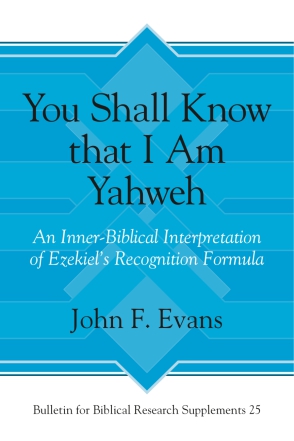
You Shall Know that I Am Yahweh
An Inner-Biblical Interpretation of Ezekiel’s Recognition Formula
John F. Evans
“[T]he book provides a useful examination of issues related to the recognition formula in its various forms and contexts. The charts in chapter 3 are particularly clear and helpful. Evans addresses a wide range of questions that confront any effort to reach a definitive conclusion as to the meaning and role of the recognition formula in Ezekiel: Why is the formula used so much more often in Ezekiel than elsewhere? What exactly does it mean to ‘know that [Yahweh is] Yahweh’? Does this knowledge differ, depending on who (Israel or the nations) comes to know it? Does the knowledge differ depending on how one gains it (by being blessed or by being killed)? Finally, how ought we to construe divergences between uses of the recognition formula in Exodus and in Ezekiel?”—Julie Galambush, The College of William and Mary in Review of Biblical Literature, August 2020
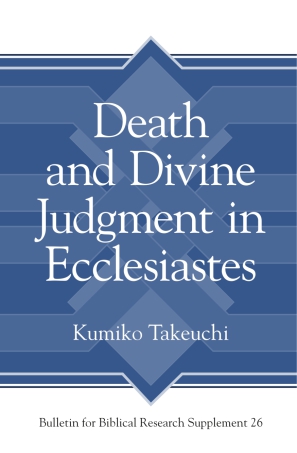
Death and Divine Judgment in Ecclesiastes
Kumiko Takeuchi
“Takeuchi has offered an insightful, well-researched exploration of a book that continues to vex readers and scholars. The author is to be commended for the ways in which she connects disparate elements of Ecclesiastes and for her insistence that the frame narrative be taken seriously as influencing any final reading of the book. While her conclusions are evocative, they offer more potential for further exploration than final answers. (Which is perhaps fitting for a monograph on Ecclesiastes!) . . . One hopes that Takeuchi will explore this question further in subsequent works and offer a more in-depth reconstruction of how temporal dualism might have evolved out of a work such as Ecclesiastes. But this is also what we should hope for from monographs in the field of biblical studies: that they will point the way toward further scholarly endeavors. In this regard, Takeuchi succeeds admirably.”—Brandon R. Grafius, Ecumenical Theological Seminary in Review of Biblical Literature, August 2020
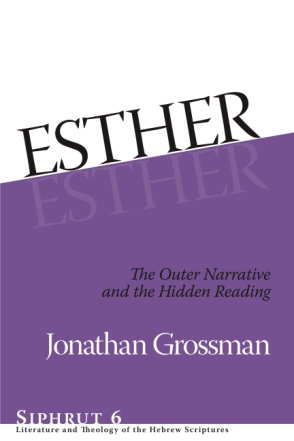
Esther
The Outer Narrative and the Hidden Reading
Jonathan Grossman
“In some respects Grossman’s reading is a version of the ironical and satirical readings favoured in recent scholarship, but in its repeated insistence on Esther’s verbal intertextuality with other parts of the HB it claims a more purposeful and theologically orientated ‘carnivalesque’ character for Esther than the comic safety-valve to which some of these other readings reduce it. Indeed, G. coins the phrase ‘theological carnivalesque’ (p. 238) to describe the Esther narrative, asserting that the story is meant to emphasize the instability of life in general in which no human being, however powerful, truly knows what is going on. G.’s study reads easily and is full of intriguing and suggestive observations about the text of Esther, particularly in noting echoes of other biblical writings.”—Deborah W. Rooke, in Journal for the Study of the Old Testament 43 (2019)
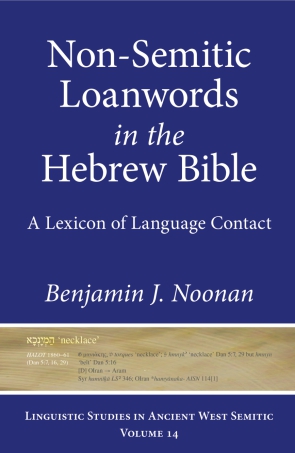
Non-Semitic Loanwords in the Hebrew Bible
A Lexicon of Language Contact
Benjamin J. Noonan
“This is an effective summary of previous studies of this subject and adds many perceptive insights of the author himself. . . . [T]he book as a whole provides much stimulating supplementary material for any Hebrew dictionary that has decided to ignore or been content to provide only out-of-date etymological data.”—Mervyn Richardson, in Journal for the Study of the Old Testament 44 (2020)
new from psu press
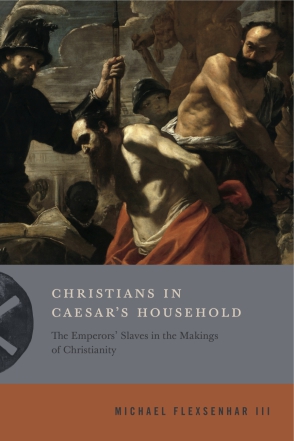 Christians in Caesar’s Household
Christians in Caesar’s Household
The Emperors’ Slaves in the Makings of Christianity
Michael Flexsenhar III
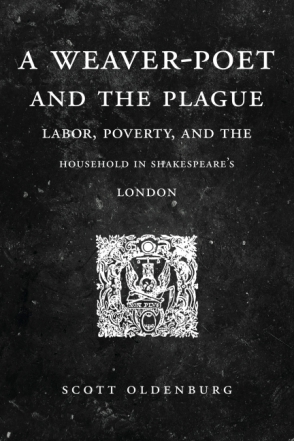 A Weaver-Poet and the Plague
A Weaver-Poet and the Plague
Labor, Poverty, and the Household in Shakespeare’s London
Scott Oldenburg
| Control your subscription options |


